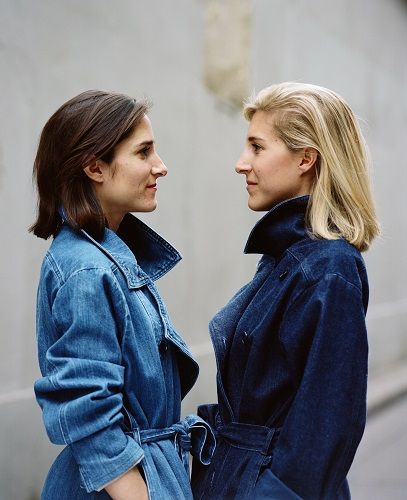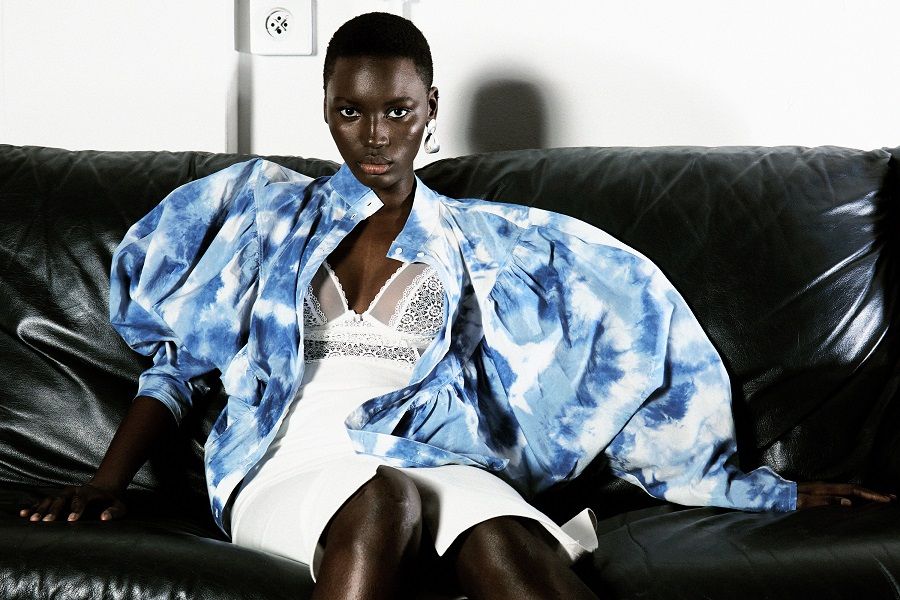
There are two of them. They are twins. And their speciality is denim. But this synopsis is far too simplistic, because Façon Jacmin is so much more. The projects curated by Alexandra and Ségolène Jacmin takes a sustainable yet desirable approach to clothing, as Zoe Bellot, Project Coordinator, explains.
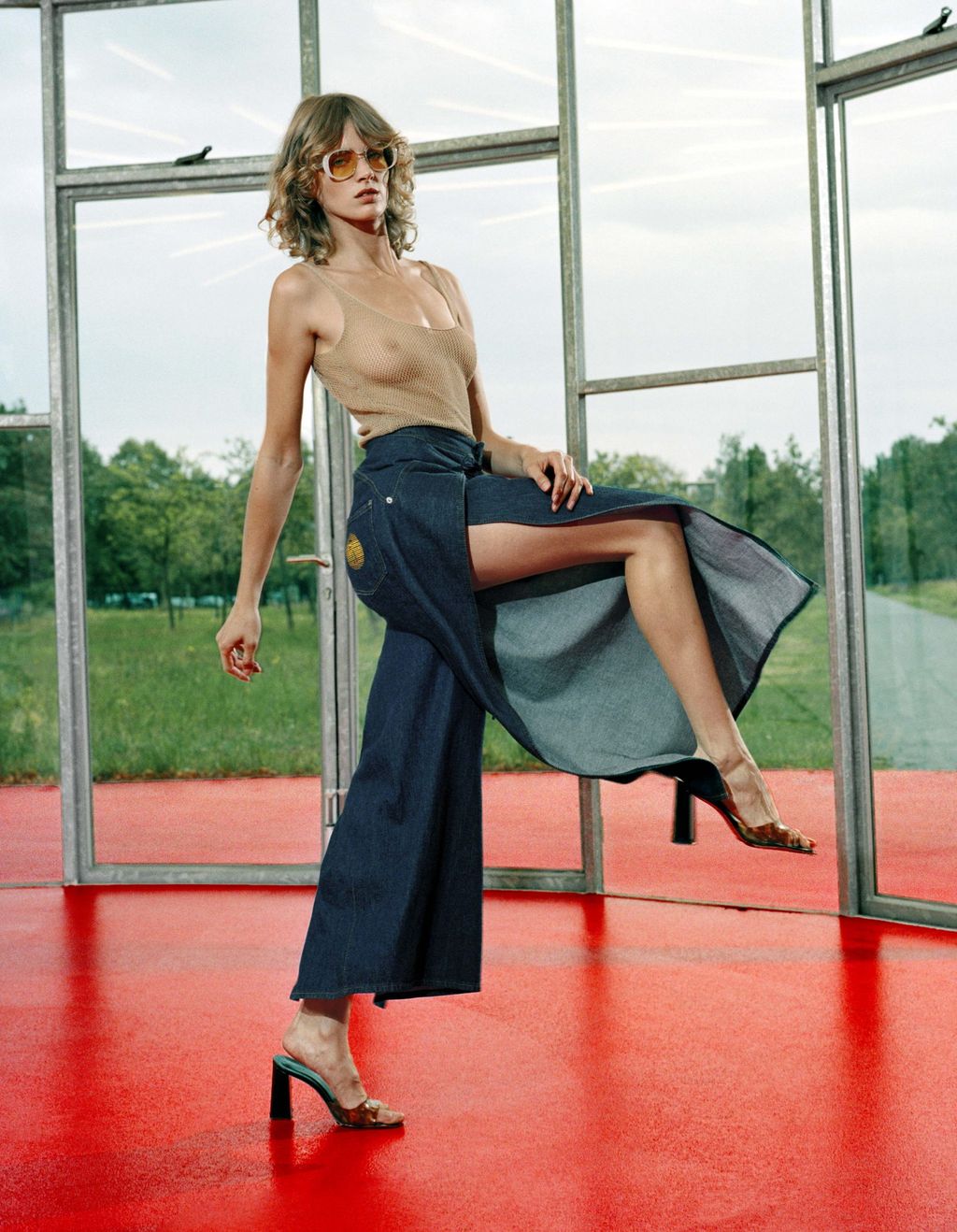
Denim has been your specialty, the essence of the label, ever since Façon Jacmin was launched. Why?
From the start, the idea was to build from a timeless and universal article of clothing – jeans – and to create a brand for all woman, without exception. Their universe is strongly rooted in a “workwear” approach. The foundation: a menswear-inspired work garment given a couture dimension. For Alexandra and Ségolène, it was simultaneously a style and business challenge.
Like other successful emerging brands, Façon Jacmin is the result of joint effort. Does the complementarity partially explain the label’s success?
Alexandra graduated from La Cambre Mode(s). She then built up her experience at Martin Margiela and Jean Paul Gautier. She lives in Paris, where the design studio is based. Her role is to construct and deconstruct denim, to create new offerings. Ségolène lives in Belgium, where the brand’s headquarters are located. She takes care of the business side. But they share a vision of positioning Façon Jacmin as a brand that carries both their name and their values: openness towards customers, transparency, ethics and a very pragmatic approach to clothing.
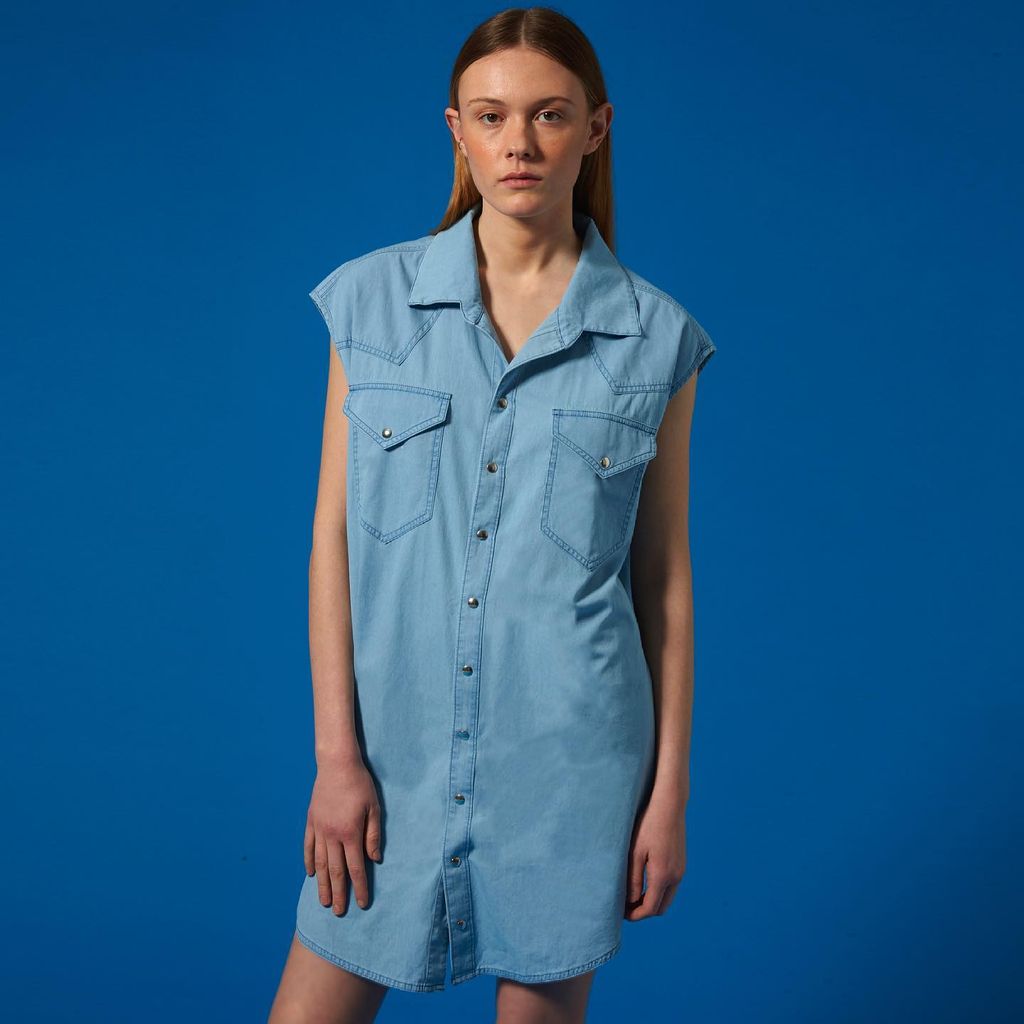
Their ‘deluxe’ version of denim goes hand in hand with an ethical vision of fashion.
For Alexandra and Ségolène, this aspect is a matter of course. The Japanese denim used for all the collections, comes from an artisanal factory that recycles 99.99% of the water required for production. Considering that denim is one of the biggest polluters in the textile sector, the impact of their approach is clear. In 2016, when they launched the label, it seemed completely impossible to them to adopt a different approach. If only because it has their name, Façon Jacmin must embody their vision of fashion.
The decision to keep the brand free from conventional distribution networks, by selling the collection in a truck, helped to create brand awareness. Was this simply a springboard, or a real business model?
Since its launch, Façon Jacmin has tried to position itself as a brand focused on the concept of sharing. What better way than a traveling boutique to meet customers wherever they are found? Now we have opened a location in Brussels, which is both a boutique and a showroom, and a second one in Antwerp. But our approach today remains strongly rooted in this idea of sisterhood and very personal relationships between woman.
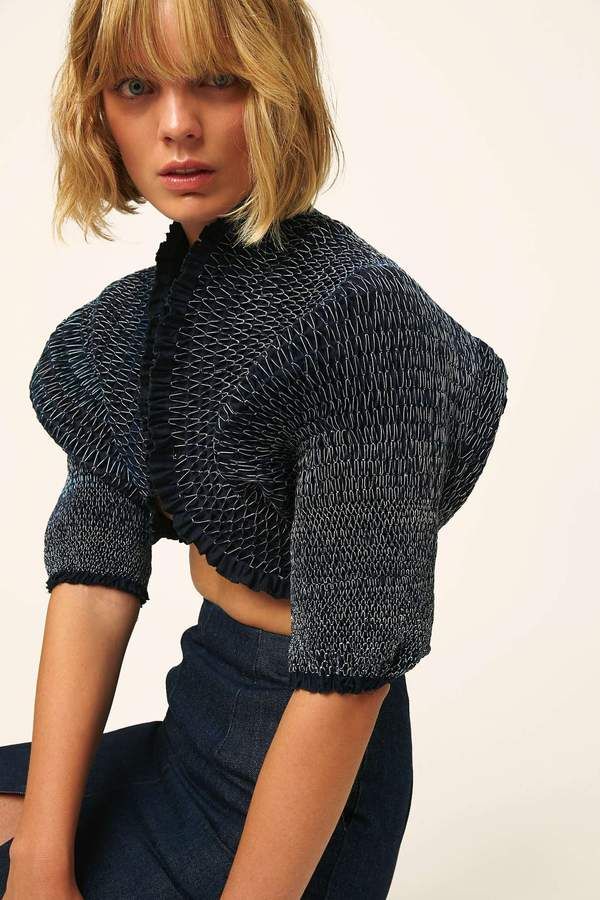
Tell us about your artisanal collection: is this a word and a concept more relevant than ever?
This collection is entirely made by hand, with the idea of progressive recycling, using old jeans that are unravelled to create couture pieces. We thus made a blazer that took 300 hours of work.
This year, you launched a capsule collection that mixes denim and knitwear. Are you trying to get out of a too-restrictive niche?
Let us say rather that this capsule is the result of a desire to expand our areas of expertise. Behind this collection, Alexandra also wanted to send a rather offbeat message, in the sense that the indigo cotton yarn looks like denim. It’s a little wink of the eye, a reminder that Alexandra was in charge of the knitwear department within the Maison Martin Margiela.
Sometimes it is more difficult to find your audience in your own country than abroad. Where is your audience?
Right now, our audience is mainly Belgian; our customers, as well as the women who follow us on social networks, are mostly from Brussels and Antwerp. Certainly, we want to extend our visibility and increase our presence on the European market. We are currently distributed at Le Bon Marché in Paris, in a multi-brand in the capital as well as in Bordeaux. Within this perspective of exporting, we also have an agent who is exploring the French market, and we take part in the Base Denim show in Amsterdam. But we certainly are not spreading out. denim remains our specialty. The goal is to maintain an ethical approach and a real consistency in our distribution network.
